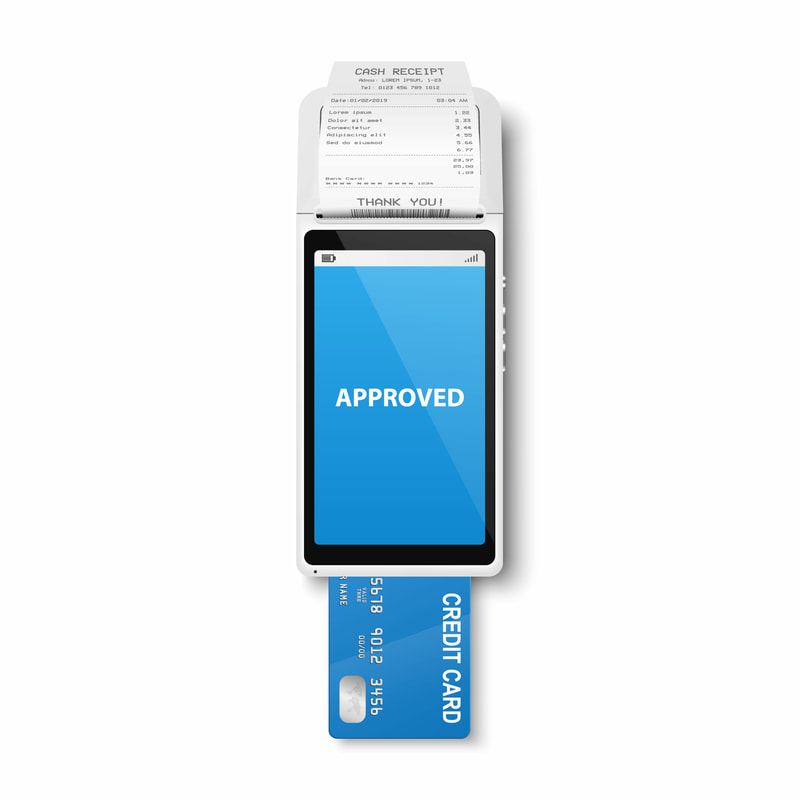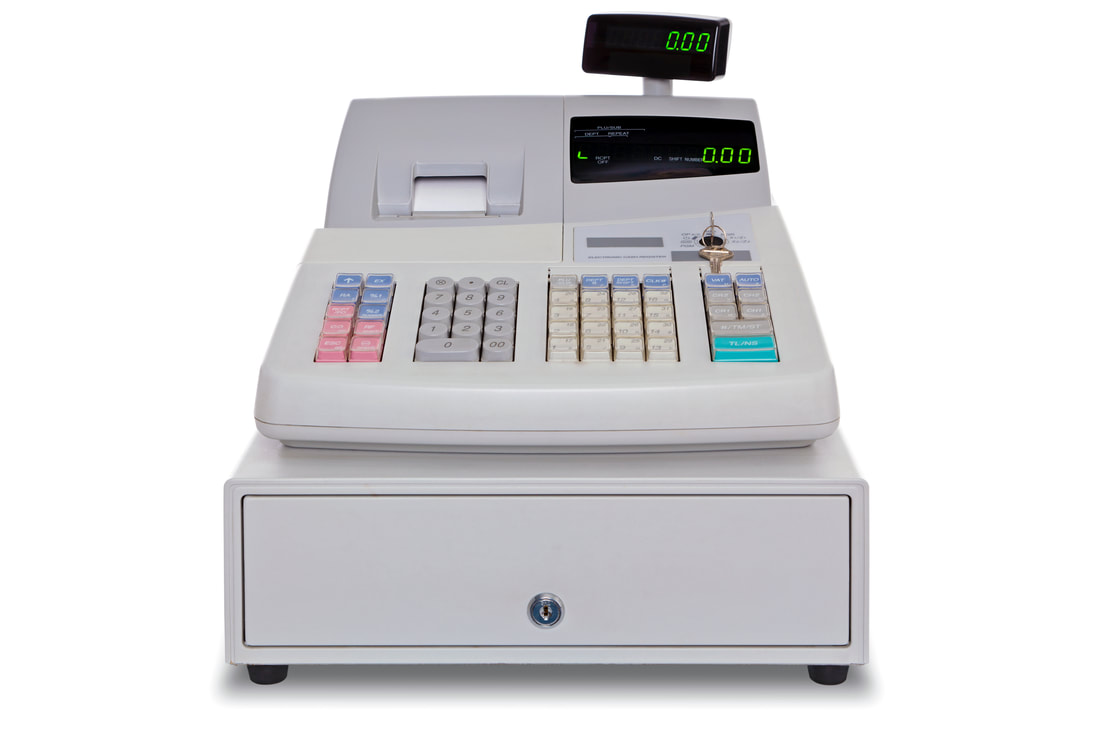|
6 Ways to Reduce the Overall Energy Cost For Your Business
Are you a business owner struggling with the high cost of electricity? Energy costs can be high for businesses of all types and sizes. By implementing a few simple energy-conservation strategies, you can help reduce your company's energy use. Not only is conserving energy beneficial for the environment, but it’s also good for your businesses’ bank account. 1) Let Peak Utility Brokers Be Your Energy Supplier If you live in one of the 16 deregulated states, we can help you find an electricity plan that can lower your electricity bills. We partner with over 50 electricity suppliers who compete to save you money. Many business owners are paying more than necessary for their electricity so shopping for a more affordable supplier can help save money. 2) Consider Your Business Equipment One of the best ways to reduce energy costs is to use equipment that reduces energy consumption. Consider upgrading outdated equipment such as printers, refrigerators, lighting fixtures, bathroom exhaust fans, HVAC systems, and other heavy energy-consuming equipment with an energy efficient model. By making these improvements, you could save up to 75% on some products and help boost your company’s sustainability. 3) Turn Off Lights And Devices All appropriate equipment should be put into sleep mode when not in use. Make sure to switch off all the lights and disconnect appliances or equipment that aren't in use when leaving. Simplify this process by using a power strip. Identify energy vampires, devices that continue to consume power even when they are turned off. Items such as computers, phone chargers and coffee machines can account for up to 20% of electrical bills f left plugged in at all times. Another option is installing motion sensors and automatic shut-offs on your lights when a room is not in use. It’s easy to leave lights on where you don’t need them, and this can make it easier. 4) Install Energy-Efficient Lights LED lighting uses at least 75% less energy and lasts considerably longer than incandescent bulbs. LED bulbs can last 25,000 hours, while incandescent bulbs last 750 hours. Even though LED bulbs may cost more upfront, they are more cost effective in the long term. 5) Use a Smart Thermostat Smart thermostats automatically adjust your room temperature settings for maximum performance. These devices are one of the best investments to save energy. You can program usage to shift away from peak times when demand is higher and electricity is more expensive and still maintain a comfortable temperature. 6) Involve Employees Business owners aren't the only ones responsible for implementing energy saving methods. Encourage energy-efficient work culture in your business. Educate and motivate employees to be energy-conscious and offer ideas about how energy can be saved. Get in touch with a Peak Utility Broker If you would like to reduce your business’ overall energy cost, consider contacting us. The process is simple, and we can provide a savings proposal for you. Our staff is knowledgeable and dedicated to maximizing your energy needs. Give us a call today at 406-206-7992 to learn more about your potential savings! 406-206-7992
0 Comments
In this century of advanced technology, many manual tasks have been eliminated; therefore, the automation of many daily tasks has made life easier and increased overall productivity. POS (Point Of Sale) Systems significantly contribute to automation processes in more ways than you might think. Electric POS systems offer additional benefits beyond automation. While many of these are evident on the surface, there are other underlying benefits to utilizing these systems. Below we outline some of the advantages in more detail. Speeding Up the Checkout Process Speed up the checkout process by ringing up customers quickly and accurately with a POS system. Each transaction is digitally stored, reducing the potential for human error. This also helps save time and keeps you organized. You won’t have to worry about keeping all your receipts because all information is saved in a database. Peak Utility Brokers accepts all current electronic payments like credit, debit, ACH payments, and more! Analytics and Reporting Data Making data-informed decisions to improve your business success is significant. POS systems can capture a variety of metrics. These valuable metrics will help manage billing and collections, inventory management, sales tracking, customer engagement, and retention. Customer Reward Programs Loyalty programs give your customers an incentive to continue doing business with you. Building customer loyalty by offering various discounts such as paying with cash, in-store gift cards, or recurring points programs. POS systems make it easy for retailers to create loyalty programs that reward dependable, returning customers. Manage Employees Managing employees and all things associated with that can sometimes be challenging. A POS system can help by tracking time, scheduling, and monitoring employee activity. POS systems offer improved efficiency, allowing employees to have more time to interact with customers Inventory, sales, and pricing accuracy are critical to maintaining a successful business. A POS system automatically helps reduce errors in your business activities. They also accurately track transactions, cash flow, and inventory, saving you time and money. Ease in Use An all-in-one POS system makes business operations more convenient and simple. The POS system features include a touch screen, receipt printer, cash drawer, and magnetic stripe reader. No extra parts are needed. What separates Peak Utility from the rest At Peak Utility Brokers, we offer several merchant services to fit your business needs. Many traditional POS companies add a hidden associated fee with each credit card transaction. These fees may include additional expenses such as interchange, transaction, authorization, statement, online access, and other junk charges. These fees can range from 1.5% to 3.5% of each transaction’s total and quickly add up to become a significant expense. Using Peak Utility Brokers services avoids these fees with our 0% processing programs. In today’s competitive market, small business owners, in particular, need to decrease overall monthly operating costs. We can help lower your rates with 0% credit card processing and reduce your credit card processing fees by passing the cost to the customer. It's hard to beat our competitive rates. Our POS system is secure, reliable, and affordable. With our experience, we will help you increase efficiency, streamline reporting, reduce costs and improve customer service. Our dedicated support team can help resolve any issues or answer questions to keep your investment safe. If any of these benefits appeal to you, call Peak Utility Brokers today! 406-206-7992 We operate in a digital age where anything is available with just a tap or click. Establishing efficient workflows and processes are critical to managing a business successfully, given the competition created from online sales and other local businesses. A crucial piece of efficient workflows is processing payments and tracking inventory. While cash registers and POS systems share a similar goal, it is critical to understand their differences to best suit your business and customers’ needs. Whether you own a local retail business or multiple locations, you can choose from traditional cash registers or a point-of-sale (POS) systems. Cash Registers Even though cash registers were revolutionary in their time as the only option for integrated payment processing, today, fewer people use cash regularly, with only 16% of Americans carrying cash daily. Given the decrease of consistent cash payments, it would make sense that there is a need for something to take the place of cash registers. Literally speaking, a cash register is a machine that solely calculates and records transactions. But if you want additional features like credit card readers, barcode scanners, or scales, you’ll need to invest in other hardware that can add up in expenses. However, cash registers have a low initial cost and primary functions to run a business. They may last up to ten years, but you may be missing out on benefits and modern technology.  POS Systems
Meanwhile, a POS system can do everything a cash register can perform but more! A digital POS system automatically calculates and records transactions with everything related to the item purchased. Not only do POS systems handle financial transactions, but they can act as the core operation of your business. From automation on tracking inventory to management. No additional parts are needed with the all-in-one software and hardware solution. Additionally, POS Systems can record multiple data points critical for modern businesses. POS systems will help you understand more information about your business like:
On top of the analytics provided by POS systems like ours, payment processing is also taken to the next level. Another advantage provided by POS systems is the allowance of companies to accept various payments, including the ever-changing landscape of contactless and mobile payments, which can make paying for products or services more convenient for your customers. Depending on which features you need, you can choose a simple POS system or one with advanced capabilities tailored to your business. At Peak Utility Brokers, we offer a wide range of customizable solutions to cover all of your payment processing. There are different price points in POS systems, which can be affordable and fit your budget. Call us today for more information or questions! As utility brokers, the cost of electricity and natural gas is inevitable. We know it can be a little overwhelming at times. But commonly, it is a significant expense for businesses and homeowners every month. The average price of utilities per month varies by state. For businesses, it is hard to determine the average because it depends on the specific industry. But for example, homeowners have an average monthly utility cost for electricity is $114.44, and natural gas is $63.34. We are a company dedicated to helping businesses manage their energy costs. Not just limited to the Billings, Montana area, but over 27 different states where energy is deregulated.
It’s our mission to help you understand your electric bill simply. It is essential you know all the elements of the energy charges and fees on your electric or natural gas bills each month. How you deal with your energy reflects on your whole business. If you want changes in your overall budget, start by making decisions effectively to minimize bill costs. We have the best solutions for you to help you save money in the short and long term. What is an energy bill? An energy bill comprises three components; energy charges, demand charges, and fixed charges. Energy charges are determined by the amount of electricity (kWh) consumed. Sometimes, depending on the time and season, the costs can fluctuate based on the usage. The maximum demand determines demand charges during the billing period. Fixed charges are determined by the same electric rate per kilowatt-hour (kWh). There are a few ways to reduce costs affecting your bill other than conserving energy used. But one of the most effective ways is having Peak Utility Brokers assess and select the best utility suppliers for you to work with. Within our network, we work with all suppliers. We can help you save on your utility bills by up to 30% with our competitive pricing. What is a natural gas bill? A natural gas bill entails three components similar to electricity. The overall natural gas cost is determined by gas supply, gas delivery, and taxes and fees. The measured physical volume consumption determines gas supply charges. The distribution process to your home or business determines the gas delivery. The servicer determines the municipal taxes, and the state taxes are determined by the law. Assuming that your present provider is your local neighborhood utility, it's most likely you're overpaying. Most nearby services are on a variable rate gas plan. A variable-rate plan changes with the seasons, so you might be spending on higher gas costs as you utilize more energy in the colder time of year. To find out how much you can save on your utility costs, contact us today, and we will get you the best rates on your electric and gas bill. Even though some of these costs are uncontrollable, most of them are, including hidden fees that aren’t necessary. You would be shocked at how easy it is to save. Learn more about these hidden fees that aren’t mentioned in this article. We are seeing it in more businesses than ever these days, financing available. Having an effective pay-over-time option may increase the likelihood of customers making a purchase. Letting the customer know they can break their large purchases into smaller payments at lower than market rate interest rates entices them to spend more than they would all at once. The flip side of this is that it also helps the consumer stay within monthly budgets and still be able to purchase goods or services that may be out of reach all at once. Below are 5 advantages of offering financing options to your customers.
1) Increase Average Sales By offering customers the option to finance a large purchase, you can often up-sell on items they would like but previously assumed were out of budget. A recent Forrester study found that when companies began offering a point-of-sale financing program to customers, their sales increased by 32 percent! This simple option to split purchases encourages buyers to get exactly what they want and not only go for the essentials. 2) Increase Sales Volume Not only will the average price of sales go up when offering financing, but the frequency as well. Having an integrated financing option within your POS allows the customer to make the split-second decision at the front of the sale and not have to go home and think about it. When shopping for big-ticket items, customers are prone to shop around and compare prices and often try and negotiate the price, but when the opportunity to finance said purchase is available, it alleviates the feeling of needing to shop around. 3) Improved Customer Experience By offering financing options, your business becomes the contact who is looking out for the customers’ finances. You are helping them reduce large upfront cash outlays or credit line expenditures. You create flexible payment options to fit individual budgets and cashflows. You simplify the process for them by making one contract and payment for equipment, services, and other materials. Your business is the one delivering a digitalized experience, including fast credit approvals. When utilized correctly, offering financing places you at the top of the customer experience and will ensure customer satisfaction and, as a bonus, lead to customer loyalty. 4) Enhanced Cashflow No more waiting around for contracts to be fulfilled after service has been provided. No more “the check is in the mail.” By Utilizing a financing service, you get paid when the sale occurs, and the customer makes payments to the financing company. This means your capital on hand is higher and up to date based on sales. 5) Increase Profit Margins When someone sees a large lump sum, they are more likely to price shop. They’ll try to lower the price by slashing parts off of your solution. That is not the case when they see a monthly payment. When the large purchase is broken down into these smaller installments, their frame of mind shifts from the total cost to working it into their monthly budget. Payment processing, financing, and integrated solutions are some of our specialties here at Peak Utility Brokers. There are many more than the above 5 advantages of offering financing options. If you have any questions about whether your business should provide financing, feel free to contact us here or call. 406-206-7992 Utility bills are one of the highest costs to people besides their monthly rent or mortgage. Not only are utilities a significant expense for residential addresses but commercial ones as well. Saving money on utilities is easier than you might expect. With multiple providers in one location, competition creates purchasing power for the consumer if they utilize an energy broker.
This is where Peak Utility Brokers comes in. Let us help you score 10-30% savings on electricity & natural gas for your home or business! We work with all suppliers in all markets, plus there are never any service disruptions and always zero switch-over fees. Below is a list of 5 ways we help you save on your utilities. 1) Best Price When you utilize our brokerage services, we make the power companies compete for your business at the best possible rates. When utility companies realize they are competing to gain your business, they will do what they can to bring you in and make it challenging to change your service. Since we negotiate for you, we ensure you are always getting the best rate possible. 2) Simplicity We handle all the processes for you. When you submit a quote, we instantly start searching to see how we can help you save. By analyzing our vast network of energy companies in your area, we make them compete to gain you as a customer providing you with the lowest cost with no service disruptions and no switch over fees. All you have to do is provide us with basic info, and we take it from there. 3) Ease of access Peak Utility Brokers is an entirely remote service that works anywhere, anytime within our service boundaries. Given that we offer service in over 25 states, this makes it easier than ever to get the best possible rates on your gas bill or electric bill. 4) Choice of Supplier While we do this step for you, it still gives you the option to choose the best supplier. We can do the looking for you and give you the best option out there. Want to make sure the provider you are choosing is reliable or maybe that they are environmentally responsible? We can also help you there, with resources to look at and determine if you want to support their business. Whatever you need to ensure your energy needs are met, our utility brokerage is here for you. 5) All markets We work in all deregulated markets to ensure that anyone can access reliable and affordable gas and electricity. Being involved in all markets allows us to compare rates across the nation and ensure that you get the best possible price. If you are ready to start saving money on your utilities today, contact us, and we will help you get sorted out. 0% Credit Card Processing, what is it exactly? Zero percent payment processing is an alternative way to help merchants save on processing fees by automatically including the cost in the customers' purchases. The following 5 advantages of 0% credit card processing are just a few things to consider.
|
WelcomeWelcome to our blog! We look forward to sharing tips on how to save money and increase the value of your business. Archives
February 2022
Categories |
|
Peak Utility Brokers Inc
Tel: 847-302-8310 |
Copyright © 2023 Peak Utility Brokers Inc. All Rights Reserved.












 RSS Feed
RSS Feed
